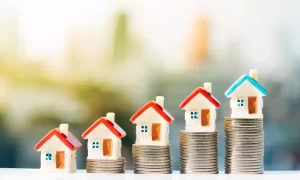
Low libido is a common condition that affects both men and women. It is defined as a lack of sexual desire or interest in sexual activity. This can be a frustrating and distressing condition for those who experience it, and it can have a significant impact on their relationships and overall quality of life. Though there are medicines available like Cenforce 120 and Vidalista 40, it is only temporary form of treatment.
Causes of Low Libido
Low libido can be caused by a variety of factors, including physical, psychological, and environmental factors. Some of the most common causes of low libido are:
Hormonal imbalances – Hormonal imbalances, such as low levels of testosterone or estrogen, can cause low libido in both men and women.
Medications – Certain medications, such as antidepressants, can cause a decrease in sexual desire.
Stress – Stress can have a significant impact on sexual desire, as it can lead to feelings of anxiety, depression, and fatigue.
Relationship problems – Relationship problems, such as conflicts, infidelity, or lack of communication, can also lead to a decrease in sexual desire.
Depression – Depression can cause a loss of interest in many activities, including sex.
Chronic illnesses – Chronic illnesses, such as diabetes, heart disease, and cancer, can also cause low libido.
Aging – As people age, their levels of sex hormones may decline, leading to a decrease in sexual desire.
Treatments for Low Libido
The treatment for low libido depends on the underlying cause. Here are some of the most common treatments for low libido:
Hormone therapy – Hormone therapy, such as testosterone or estrogen replacement therapy, can be used to treat low libido caused by hormonal imbalances.
Medications – Certain medications, such as sildenafil (Viagra), can be used to treat low libido caused by physical factors, such as erectile dysfunction.
Counseling – Counseling can be used to address psychological factors that may be contributing to low libidos, such as stress, depression, or relationship problems.
Lifestyle changes – Lifestyle changes, such as reducing stress, getting regular exercise, and improving sleep habits, can also be effective in treating low libido.
Alternative therapies – Alternative therapies, such as acupuncture, herbal supplements, and yoga, may also be helpful in treating low libido.
Preventing Low Libido
There are several steps that individuals can take to prevent low libido. Here are some tips for maintaining a healthy sex drive:
Communicate with your partner – Communication is key in any relationship, and it can be especially important when it comes to maintaining a healthy sex drive. Talk openly with your partner about your needs, desires, and concerns.
Manage stress – Stress can be a major contributor to low libido, so it is important to find ways to manage stress, such as through meditation, exercise, or counseling.
Get enough sleep – Lack of sleep can lead to fatigue and a decrease in sexual desire, so it is important to prioritize getting enough sleep each night.
Maintain a healthy lifestyle – Eating a healthy diet, getting regular exercise, and avoiding excessive alcohol and drug use can all help to maintain a healthy sex drive.
Seek medical advice – If you are experiencing symptoms of low libido, it is important to seek medical advice. A healthcare provider can help to identify any underlying conditions that may be contributing to your low libido and recommend appropriate treatments.
Low libido is a common condition that can have a significant impact on an individual’s quality of life. It can be caused by a variety of factors, including physical, psychological, and environmental factors. Treatment options may include medicines like Fildena 50 and Vidalista 80 but it may depend on the underlying cause.







